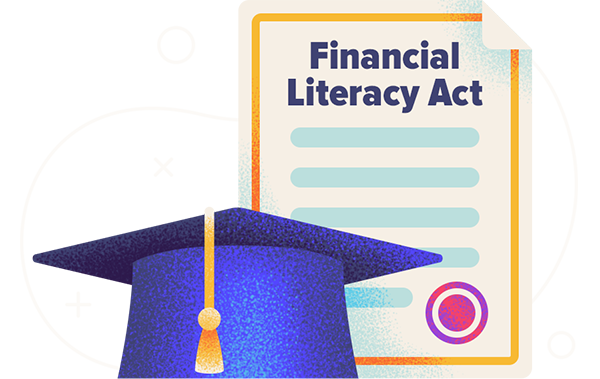Financial literacy is more than a buzzword these days. In truth, it’s proven to be something of a pandemic, as habitually poor consumer borrowing, spending, and payment habits not only helped bring about the Great Recession, but are also jeopardizing the retirement plans of huge population segments as well as leaving new college graduates without the jobs necessary to pay off the mountains of debt they leave campus with. The question is what are we going to do about it?
If Sen. Kay Hagan (D-NC) has her druthers, Congress will pass the Financial Literacy for Students Act that she introduced in late April. The bill – which is currently on the docket for consideration by the Senate Committee on Health, Education, Labor, and Pensions – would create grant program for states that add financial literacy to their K-12 public school curricula and develop professional education programs for teachers.
Legislating Financial Literacy? Don’t Count On It
This isn’t the first time such legislation has been proposed to Congress, let alone by Hagan herself. The former banker and current head of the Senate Subcommittee on Children and Families previously introduced similar bills in 2009 and 2011, though neither made it out of committee. The odds aren’t great this time around either. According to GovTrack.us, the Financial Literacy for Students Act has only a 2% chance of getting out of committee and a 0% chance of actually being adopted based on the fact that only 12% of the bills that have been introduced in the Senate since 2011 have made it out of committee and only 2% were eventually enacted.
Sure, we all know that Congress is more frustrating than gridlock on a Friday afternoon these days, but even so the bill’s poor prognosis begs a couple of very important questions: 1) Isn’t voting against financial literacy basically tantamount to saying nay to puppies?; and 2) How is teaching the nation’s youth about saving money and not repeating our mistakes a political issue?
Politicians will undoubtedly find ways to justify their disapproval, whether it is substantive or driven by partisan interests, and one of the primary reasons given will likely be that public school subject matter should be the purview of each individual state, not the federal government.
There is indeed something to be said for that, especially since Sen. Hagan modeled this would-be federal program after a similar initiative she implemented when serving in the North Carolina Senate. While it has been successful for the Tar Heel State, who’s to say the same would be true in different environments?
Well, WalletHub sought the opinions of experts in the fields of education, economic, and social policy for their opinions, and you can check them out below. Overall, it seems that while something must be done about financial literacy, this particular piece of legislation probably isn’t going to cut it.
Expert Opinions: Financial Literacy Act
Ask the Experts
Director of the University of Michigan – Dearborn’s Center for Economic and Entrepreneurial Education
Read More
Assistant Professor of Education at the University of Southern California
Read More
Associate Professor of Public Policy at Pepperdine University
Read More
Frederick M. Hart Chair in Consumer and Clinical Law at the University of New Mexico School of Law
Read More
Professor of History at the University of Iowa whose research focuses on public policy and political economy in the United States since 1920
Read More
Final Thoughts
While Sen. Hagan’s bill is likely to fail, we can only wait and see what happens in the hallowed halls of Congress in the days and weeks to come. But no matter what comes of this particular piece of legislation, we must not lose sight of the importance of financial literacy to our economic future. If we don’t give young people the tools to avoid future depressions or a declining quality of life, we will all have failed.







WalletHub experts are widely quoted. Contact our media team to schedule an interview.